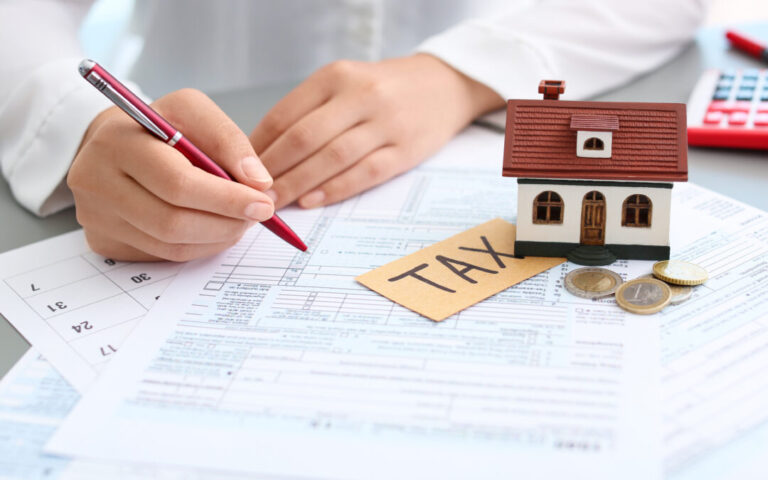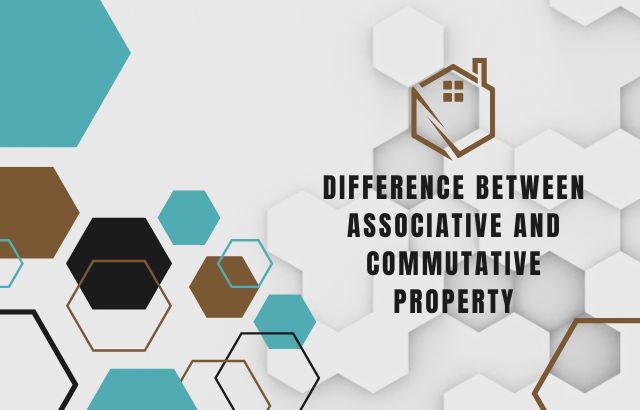How to Report Someone Living on a Commercial Property | Legal Steps

We may encounter situations we haven’t dealt with in everyday dealings, and the required course of action seems unknown and confusing. In such a case, we need proper guidance on effectively dispersing the matter while not hurting the people involved. We are here to help you work out the course of action by providing you with all the information regarding commercial properties and the rules about living in them. Let’s learn how to report someone living on a commercial property.
How to Report Someone Living on a Commercial Property

Suppose you have found out that someone is living on commercial property and that they have repurposed the property for a use that hasn’t been registered with the government. In that case, you can report that to ensure that the real estate zoning laws are fully obliged uniformly throughout your neighborhood.
You may tell the local city council by submitting a report or by calling them and providing them with the required details. You may contact and write to the local government representatives of your area or tone, depending on which country or state you live in.
Every region has rules the landlords must abide by to keep the buildings in good condition. You can find these rules in the house code or building code book. So, if you see the owner not following any rules, you can report them. You can mostly make a report at your apartment or sometimes as neighbor.
Who Should Report a Residential Landlord?
When you pay to rent a house or an apartment as a tenant, you can eventually disagree with the landlord or investment company. Often disputes are about the economic circumstances of the building, vital services, cost of living increases, or your chance to stay.
Direct negotiations with the manager or landlord are preferable. Ensure that everything is documented in writing. You can seek outside assistance if you and the landlord cannot agree.
The U.S. Department of Housing and Urban Development may receive landlord concerns from tenants who reside in HUD or federally financed housing. Calling (800) 685-8470 will connect you to the Multifamily Housing Complaint Line for poor landlords.
Forcing people to live in subpar facilities, failing to provide safe living circumstances, and breaking rental or contractual commitments are all charges that HUD acknowledges.
What to Do If You’re Reporting a Landlord?
If your landlord is acting inappropriately or you disapprove of how they are acting, for instance, if:
They harass you, for example, by entering your property without permission. They treat you unfairly, for instance, by charging you more rent or a security deposit than other tenants due to your country, ethnicity, age, or sex.
The best action is to first discuss the issue with your landlord. You can take other actions to complain if this doesn’t work.
For example, tenants in California have their civil rights protected by the California Department of Fair Employment and Housing. Under the Fair Employment and Housing Act, the Ralph Civil Rights Act, the Disabled Persons Act, and the Unruh Civil Rights Act, this department investigates, mediates, and prosecutes housing offenses.
A tenant may use the department’s online complaint form to report a landlord to the agency if they believe the landlord is treating them unfairly because of their color, age, handicap, religion, or sexual orientation. The tenant’s options for making a complaint are to ask DFEH to look into the situation or to ask for the right to sue.
Tenants can file complaints about discrimination at www.dfeh.ca.gov, where the complaint procedure is described.
Who Should Report a Commercial Tenant?
Numerous tiny firms lease their space. The hassle of dealing with a tenancy agreement, landlord, or real estate company comes with rent, which is generally affordable and convenient.
You should be aware of your commercial landlord rights if you are a small business owner renting a space in a building or a storefront. While these rights vary from state to state, all jurisdictions are guaranteed some fundamental rights under federal and state law.
Sometimes, tenants will want to talk about the specifics of a lease, and you should pay attention as a landlord. Ask them to initial the places of the rental agreement where changes were made if the adjustments they recommend are acceptable.
A renter may occasionally come to you with their lease agreement. If this occurs, let the tenant know that you won’t be using their contract while you are open to discussing possible lease amendments. Your lease agreement’s language should be clear and straightforward. A lease contract should not contain a lot of legalese, but it is crucial to have one reviewed by an attorney before making it available to tenants.
Ensure that the agreement contains all the promises you make regarding the renting conditions. Don’t add anything new; if you and the tenant agree to something extra, include it in the contract.
Keep copies of all communications and transactions after the renter signs the lease. If the payment is paid directly, a receipt must be created. A copy of the bounced check must be delivered in person and a letter demanding full payment if a check is returned unpaid.
Stress that you must pay to cover a bounced check in person and that you cannot use another personal check. Send out rent notices monthly and ask your tenants to send any requests or inquiries in writing so you can retain a record of your interactions with them.
Why Is It Important to Report an Illegal Living Situation?
It is important to report an illegal living situation; otherwise, the following actions will lessen the chance of crime while lowering the likelihood that the property owner will be held accountable if and when a robbery or assault occurs. A landlord should follow these guidelines:
Meet or exceed all applicable state and local security regulations, including the rental property’s need for window locks, decent lighting, and deadbolt door locks.
Design a security system that offers the renters a reasonable level of protection given the crime scenario in and around the rental property and the community. Your insurance provider, the local police agency, and private security experts can all offer helpful security advice.
Informing renters of area crime issues so that they can alert the landlords about it.
Who is Responsible for Reporting Someone Living on a Commercial Property?

A landlord’s obligations include issuing a lease agreement and other necessary legal documents. The landlord must ensure the written rental agreement is valid and compliant with all legal requirements. Tenant names, lease terms, and monthly rental costs should all be specified.
Legal disclosures, like information on the security deposit, are required in some jurisdictions every necessary provision, such as a recommendation that residents buy renters’ insurance, should be included in the lease.
A landlord is responsible for reporting someone living on his property as he’s responsible for all the legal disclosures.
What to do when you discover someone living on a commercial property?
Suppose you have found out that someone is living on commercial property and that they have repurposed the property for a use that hasn’t been registered with the government. In that case, you can report that to ensure that the real estate zoning laws are fully obliged uniformly throughout your neighborhood.
You may tell the local city council by submitting a report or by calling them and providing them with the required details. You may contact and write to the local government representatives of your area or tone, depending on which country or state you live in.
Understanding the regulations of a complicated jurisdiction like California or Texas might make it difficult to understand real estate legislation. An attorney’s advice is helpful in such circumstances. You can also find the pertinent laws with the aid of regional real estate associations or other local professionals. You can also explore internet resources like websites and newsletters on real estate law.
Real estate law websites frequently include a thorough summary of the most recent real estate law modifications in your state or area and a thorough guide to all pertinent federal, state, and municipal laws. Some websites also have directories of nearby lawyers and legal offices, which can help you, locate local authorities on commercial real estate law.
Frequently Asked Questions
Can I live in a commercial property?
Unfortunately, you cannot just choose to relocate to a property with business status. This is primarily because the necessary construction insurance does not protect persons living there for commercial properties.
How do you define commercial real estate?
Property is zoned as commercial real estate when it is housed for business activities. It includes any real estate that is meant to generate profit and income. It can be on a large scale as industrial or on a small scale such as retail shops etc.
What distinguishes a commercial property from a residence?
Because renters of residential property stay there, the landlord has a greater influence over their personal affairs. Contrarily, commercial property includes all real estate that isn’t primarily used as a residence, including office buildings, retail establishments, warehouses, and perhaps even hotels.
Who is a landlord?
A landlord is a person who owns properties or real estate mostly commercially zoned and can lease them or rent them out.
Conclusions
A tenant who breaks the lease terms would be evicted and/or banned from future lease agreements, whichever was applicable.
Furthermore, the renter can be punished, and their landlord might take legal action against them if the contract breach was illegal. Typically, the best advice is to chat with your landlord, find out exactly how your place is zoned, and seek guidance from a subject matter expert.
It may be alluring to carve off a small personal living space at work, but it usually isn’t worthwhile in the long term. Imagine if you unintentionally ignited a fire or flooded a portion of the building due to a problem with your washing machine. Do you believe the insurance provider would be willing to cover the costs of the repairs with no conditions?
If you cause damage to the property, you could face a large financial liability. In the end, it’s ideal to follow the usage the property was intended for when renting or leasing commercial real estate, whether it’s an office, a workshop, or an industrial structure.
References:
- Krow, S. (2020, November 17). Where to complain about landlords. Home Guides | SF Gate. Retrieved July 7, 2022, from https://homeguides.sfgate.com/complain-landlords-56319.html
- Housing-related complaints. USAGov. (n.d.). Retrieved July 7, 2022, from https://www.usa.gov/housing-complaints
- Contributor. (2022, June 15). How to clean a shower head, according to an expert. Home Guides | SF Gate. Retrieved July 7, 2022, from https://homeguides.sfgate.com/how-clean-showerhead-13771618.html
- III, G. N. R. (2016, October 26). Land lording Tips. Small Business – Chron.com. Retrieved July 7, 2022, from https://smallbusiness.chron.com/landlording-tips-16765.html
- Dillman, B. (2018, October 4). Criminal acts and activities: Landlord Liability FAQ. www.nolo.com. Retrieved July 7, 2022, from https://www.nolo.com/legal-encyclopedia/criminal-acts-activities-landlord-liability-faq.html
- Miller, K. (2022, June 16). Top 10 landlord-tenant laws to Remember. Rentec Direct Blog. Retrieved July 7, 2022, from https://www.rentecdirect.com/blog/10-landlord-tenant-laws-to-remember/
- Can I live in a commercial space? Merkburn Holdings. (2021, July 26). Retrieved July 7, 2022, from https://merkburn.com/2021/06/03/can-i-live-in-a-commercial-space/






